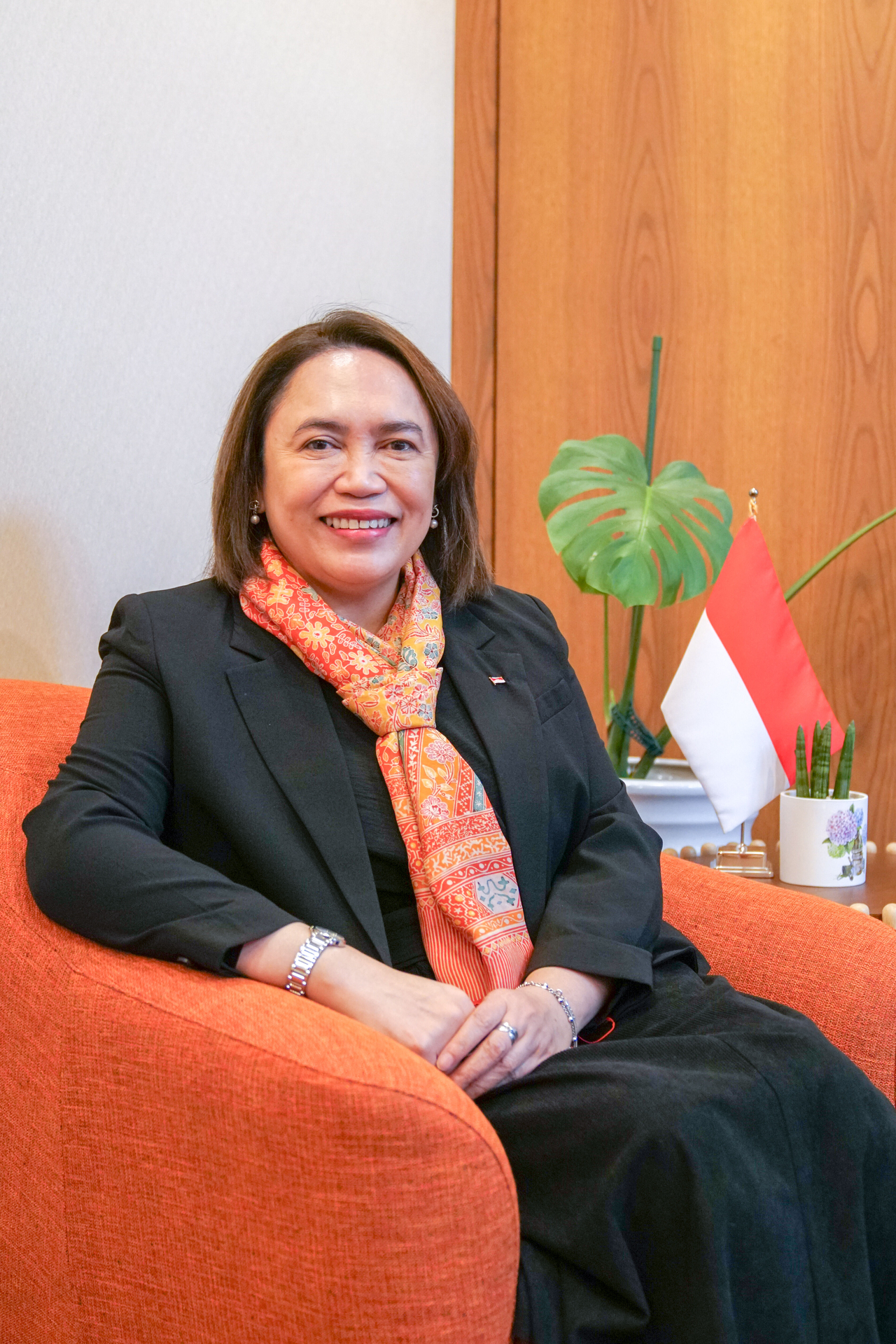
Q. What challenges have you faced as a female ambassador, and how have you overcome them? Do you believe female representation in diplomacy and politics has improved globally?
The landscape of diplomacy is changing, with more women taking leadership roles in global affairs. However, despite progress, women in diplomacy still face subtle biases, often rooted in traditional expectations. As a female diplomat, I have experienced these challenges firsthand, but I have also learned that professionalism, resilience, and a commitment to excellence are key to overcoming them. Building strong networks and focusing on results have helped me gain credibility and contribute meaningfully to international relations.
Globally, the increasing representation of women in diplomacy and politics presents an opportunity to foster a gender-responsive approach to tackling global challenges. Indonesia, for example, has made significant strides in gender equality in leadership, exemplified by figures such as former Minister for Foreign Affairs, Her Excellency Retno L. P. Marsudi. This positive shift highlights the importance of inclusive policies and advocacy efforts to support women in leadership.
Q. What policies or social campaigns have been promoted in your country to improve women’s rights and leadership?
Indonesia has been proactive in implementing gender-responsive policies to promote women’s rights and leadership, including a 30 percent quota for female representation in legislative bodies; integrating gender perspectives into policymaking and development programs through the National Strategy for Accelerating Gender Mainstreaming; encouraging public participation initiatives, including educational campaigns, entrepreneurship programs, and leadership training; addressing gender inequality in climate policies through the National Action Plan on Gender and Climate Change; as well as other efforts to prevent and address gender-based violence, such as the National Survey on Women’s Life Experiences and the SAPA 129 Hotline Service.
Q. What advice would you give to young women aspiring to leadership positions, especially in international relations?
I would like to emphasize three key points for aspiring female leaders.
First, personal and professional development. leadership requires continuous self-growth, confidence, perseverance, and a mindset of continuous learning. Equipping oneself with knowledge in diplomacy, negotiation, and cross-cultural communication is essential.
Second, building connections and embracing opportunities. Mentorship and strong professional networks are invaluable. Taking advantage of opportunities in governance and viewing challenges as avenues for growth are crucial steps toward success.
Third, making a positive impact. Leadership is about more than personal success, it is about advocating for inclusiveness, equality, and collaboration to benefit society as a whole.
Q. There are growing concerns that AI gender bias reflects both technological limitations and deep-rooted societal prejudices. Despite economic and technological advancements, what measures do you believe are necessary to bridge the gender gap both online and offline?
Another crucial aspect of gender equality in leadership is addressing bias in artificial intelligence. AI systems often reflect societal structures and technological limitations, potentially reinforcing gender disparities. To bridge this gap, a multifaceted approach is necessary. Ensuring equal opportunities for women in STEM education and the tech industry to develop more inclusive AI algorithms; Establishing ethical AI policies, including gender-sensitive data collection and bias audits; Closing the digital divide through digital literacy programs and ensuring access to technology, especially in developing countries; Raising awareness about gender bias in AI through public campaigns and educational programs to foster societal change.
Technology should empower, not exclude. By advocating for gender equality in diplomacy, leadership, and technology, we can create a more inclusive and equitable future for all.
For a special feature to celebrate International Women's Day on March 8th, The Korea Herald met with nine female diplomatic envoys in Seoul to hear their opinions on the persistance of gender inequality, AI-driven gender biases and how women's empowerment can be fully realized. -- Ed.
koreadherald@heradcorp.com




